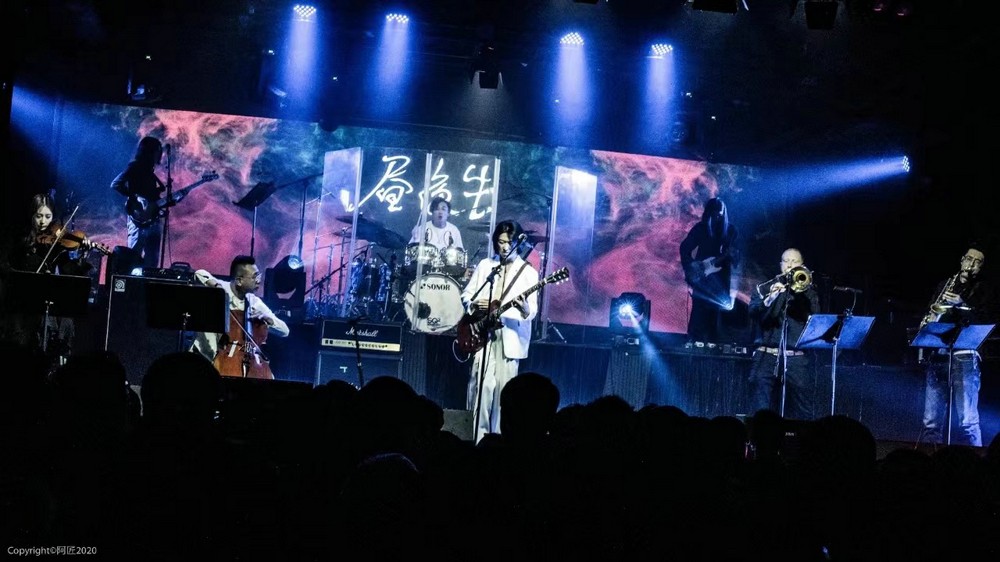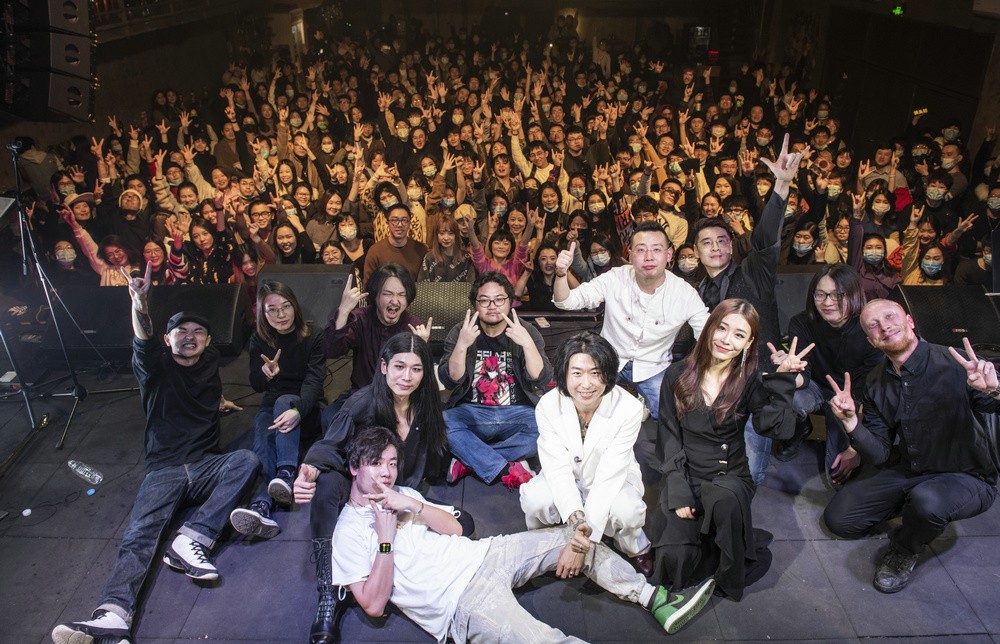Being a successful singer-songwriter comes with many challenges. Aside from the pressure to write tunes that are continuously worthy of an audience's attention; the determination, talent and mindset to get into that position in the first place is possessed by only a select few. One of them is Su Zixu.

Since learning to play guitar at the age of 15 in his native Chinese province of Inner Mongolia, he has been on a long journey filled with struggle and strife. The love and appreciation for music came with little parental influence, but in a place like where he grew up, it's hard to avoid.
"I listened to folk songs when I was growing up" Su tells That's. "They were essentially drinking songs for toasting. When I was little my parents used to take me to dinners and everyone at the table would sing before they made a toast. It felt very natural to me, and the vibe was very sincere and different."

This togetherness and sincerity experienced in Su's younger days has gone on to be reflected in his music. He has developed a heart-warming and jubilant sound which is soulful at heart but folk in execution. Now with a cult-like status, the 32-year-old has played at London's Hippodrome Theatre, toured China and Asia and all without kowtowing to the modern demands of the music business.
With everything he has been through to be as well-known as he is now, its perhaps ironic that his big break came by appearing on Chinese reality talent show Sing My Song in 2015.

"I was a (very) poor, man! As poor as (can be)" laughs the singer.
"I didn't have this idea of wanting to be famous. I was living on the streets and playing gigs like a normal musician in the Gulou area of Beijing, but I was so poor. I couldn't even buy a train ticket to the audition, the TV people had to buy me a ticket! I was drifting and living in the moment and when the chance presented itself, I was told I was going to get treated with a nice hotel, so I was like (absolutely) yeah!"
Su appeared for eleven episodes on the second series of Sing My Song. The format is a standard affair; contestants have to perform their own material and are dismissed on a weekly basis leading up to a grand finale. It is a formulaic process that leads to formulaic careers, but not in his case.
"The show was just a start. What I've always wanted to do is make albums, but to make albums I need to make money and provide for myself so I can get into the studio life. I remember before they even released the first episode, I was booking gigs and studio time."
"It would have been different to embrace a mainstream career. Mainstream operations are so different to what I came from; the crowds are different. I came to Beijing because I wanted to do underground music. I made that decision at 18-years-old; I've been rock and roll from the start. Things never get easier, but since the TV show I've been able to tour and make albums."
Using a nationally broadcast talent show to fund an underground career is certainly commendable. However, it's fair to say Su's financial rewards haven't been as big as those on the pop-song record-label circuit. Not that it matters to him because the connection he's built with concert goers has been on his terms and despite the ability to sell out venues, fame doesn't enter the equation… or his vocabulary as he so colorfully explains.
"I mean, if a dude starts eating **** on TikTok, he's going to be (extremely) famous" he says with a knowing shrug.
"Famous is normally used to describe a pop star and I don't think of myself as such.

I do have sold-out gigs, but it depends where I am. If I'm performing at Omni Space (a mid-sized venue in Beijing) then I sell-out. But I don't sell out large venues like Tango. It all depends on the venue and the city. I can sell-out in Beijing, Shanghai and Chengdu. Maybe that's it? I have a big band and I need a budget to pay them, fly them and stay in hotels. There's also the manager, roadie and sound guy so having a sold-out gig means nothing."
Su's vision for his folk-inspired melodic style of music is very much shared by his supporting band. Performing as Su and the Paramecia, or just The Paramecia to some, the group has released multiple records and featured a revolving door of Chinese and overseas talent.
Established professional Chinese touring musicians using foreigners isn't a tactic deployed too often. For one, there are different rules and regulations surrounding the booking process which can add extra hassle. But in Su's opinion, the way he can relate to musicians living overseas makes it worth the inconvenience.
"It just happened to be like this" remarks the guitarist. "Chinese musicians have, let's call it, a corporate career aside from making music. That makes it difficult to book time for rehearsals and make time for composing. Foreign musicians all have a day job, so that means at night or on the weekend they can just put themselves completely into the music and it makes the action more pure. These people were guys I hung out with every day, and we just naturally became a community."
One of those guys who has been with the band since the start is trombonist Daniel Rothwell, a fixture in Beijing's music scene for the past nine years. The two have composed, toured and recorded together since its formation.
"I joined around mid-2016, and we were basically working together on expanding his solo work to a full band project," explains the bright-haired Englishman.
"It was a new experience expanding and arranging rather complex tunes into full-scale compositions. What I've always liked about working with Su is his firm roots in 70s rock and prog and his eagerness to blend that with his modern folk sound - it means there's potential to take a tune in any direction. This was confirmed when we worked on a project in the summer of 2020; there are all sorts of genres across the three parts, from ambient to shoegaze via straight-up Cosby, Stills and Nash-style folk and modern-classical. He's all about taking risks, and that's what keeps the music fresh."
Su also reiterates the importance of the collaborative nature which has always made The Paramecia thrive.
"We (Su and Rothwell) were the two founding members. We were composing partners and holding a band together. In the early stages he was always by my side. He would ask me questions like 'what do you think of this violin player?' 'What do you think of this guitar player?' I talked to Rothwell a lot and he said it was quite intense because a lot of the gigs were sold out and people really loved the band. It was a lot of pressure to perform."

The pressure has never gone away for Su and his motivation has always lied in the need to satisfy and not to sell. During our conversation its easy to see he is a man constantly on the edge. He either needs a sense of relaxation to pull him back or an intense stimulating push to get him to the other side.
"The music has actually changed quite a few times, but I think I'm always starting again. Every year I'm starting all over again because my feelings have changed. For example, now I feel like now I can do some 'proper music'. I have been practicing for more than 20 years. Now I'm ready."
You're more likely to find him up early practicing Tai Chi than out late partying these days. Since coming to China's capital at 18-years-old it's been an on-going 15-year story with highs and lows along with a cast of characters that come and go and sometimes reappear. But no matter who is beside Su on this adventure, the hero in this folktale will always be his audience.





















0 User Comments